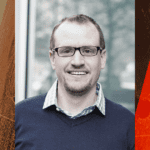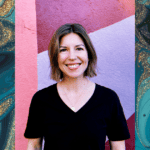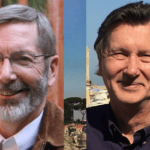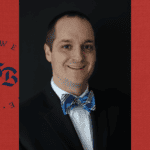
In The Theology of Benedict XVI, a group of prominent Protestant theologians present a full picture of Benedict’s theology. In this round table interview, we ask some of the contributors to give their thoughts on the importance of Benedict’s theological legacy to both Protestant and Catholics alike.
Lexham Press: Why should Protestants engage with the theological work of Joseph Ratzinger/Pope Emeritus Benedict XVI?
Ben Myers: I think he has engaged with the realities of modern culture more deeply than most contemporary Protestant thinkers. And he does so without drifting away from a fixed center in the gospel of Jesus Christ.
R. Lucas Stamps: Obviously as Protestants, we will find much to differ with in Ratzinger’s theology; many of the core disputes of the Reformation remain. But on the Trinitarian and Christological foundations of the faith, Protestants should find little disagreement. And even in those areas where we disagree (on, say, the sacraments), there are still insights in Ratzinger’s illuminating writings that can be incorporated into Protestant faith and practice.
LP: Why should Protestants read this book?
Joey Royal: To better understand Catholic thought through one of its most important and articulate exponents, to see an Augustinian theology that overlaps with Protestantism in key ways but deviates from it in other key ways, to see how Ratzinger’s theology is saturated in Scripture, and to deepen one’s own understanding of scripture by reading him. To clear away misunderstandings around key themes of Christian thought, and hopefully lead to better dialogue and more unity among Christians in the West.
LP: Why should Catholics read this book?
Ben Myers: To see how the search for truth crosses confessional boundaries. As a theologian, even the pope doesn’t belong to any specific confessional community but to the Logos and all those who search for Logos.
Christopher R. J. Holmes: Catholics should read it because preaching tends not to be so highly valued among many Catholic clergy. This is tragic as Ratzinger’s own example shows. Ratzinger appreciates that the sacrament of the altar presents us with and seals us in the promises of the proclaimed Gospel. Preaching is utterly necessary to the upbuilding and edification of the Christian community.
Joey Royal: To see Protestants as interested in Catholic thought, and perhaps closer to Catholic thought in some key ways. To clear away stereotypes and misunderstandings that some Catholics may have for Protestants. To appreciate Ratzinger in a new way by reading him through Protestant eyes.
LP: Why did you agree to contribute to this project?
Peter Leithart: Preparing a paper on Benedict’s public theology, I was impressed with his depth, balance, and humane warmth and I was interested to learn more.
Christopher R. J. Holmes: I agreed because Ratzinger exemplifies a mind that is both evangelical and catholic. He loves the Gospel of our Lord Jesus Christ, and loves the tradition that bears witness to that glorious reality.
R. Lucas Stamps: My fellow Baptist and Benedict XVI admirer, Timothy George, often says that Ratzinger is the greatest theologian to become pope since the time of the Reformation. I heartily agree. Ratzinger is one of the greatest living theologians, whose writings repay deep reflection and meditation.
David Ney: The folly of directing our precious time and resources towards beating down Christians from other traditions is more apparent than ever. With the giant of secularism looming over us and looking more hostile than ever, we must lay down our weapons and work actively not only to find ways to agree, but even more importantly, to find ways to work together even in the absence of agreement.
Joey Royal: Because Ratzinger is one of the greatest living Christian theologians, and Protestants should be more aware of him. He has a lot to teach us. As an Augustinian, his theology overlaps in more obvious ways with Protestant theology. I hope it leads to more Protestants reading him.
LP: What is the most significant or surprising insight you have taken away from your contribution to this project?
Christopher R. J. Holmes: Ratzinger taught me to pursue a “spiritual Christology,” one that is hammered out on one’s need in meditative dependence on the scriptural testimony and in fidelity the witness of the saints.
David Ney: Christocentrism is the foundation of ecumenism. Once we recognize that the ecclesial structures we inhabit are directed towards mediating the presence of Christ to the world we see that we are all in the same business, and that we are all driven by the same longing: “Come, Lord Jesus.”
Joey Royal: That Eucharistic theology need no longer be a barrier between Catholics and sacramental Protestants. That we no longer need to be held hostage by Reformation-era polemics.
LP: What insight(s) do you want readers to take away from your essay?
Peter Leithart: Protestants will be impressed with the biblical character of Benedict’s work, including his work on liturgy.
Christopher R. J. Holmes: I would like them to see how integral prayer is to the theological task, indeed to see that theology is a function of our prayer. To be sure, Ratzinger makes it clear that theology is not prayer, but rather that theology is an exercise in prayer, and something that may only be truly pursued in the mode of prayer and praise.
R. Lucas Stamps: In many ways my essay is mainly exegetical, in that I am simply trying to interpret the major themes in Ratzinger’s theological anthropology and explore their relevance for the church today. The main takeaway for me is the way in which Ratzinger casts his understanding of humanity’s purpose and destiny in the light of the True Man, the Lord Jesus Christ.
David Ney: In the West most established Churches, including the Roman Catholic Church, have fallen on hard times. In the face of current difficulties the tendency, especially for young people, is to search abroad—either for the perfect Church or for something spiritual but not religious. Yet the current lack of strong and vital leadership in these churches is not simply something to flee, since it figures the fundamental Christian hope: The common experience of ministerial deprivation has the potential to bring Christians together as they await the perfect ministrations of Christ, the Great High Priest.
Joey Royal: That Catholic Eucharistic theology is often misunderstood by Protestants, and Ratzinger helps to clear up misunderstandings and explain it with unusual depth and understanding. I hope this greater understanding leads to greater unity among Protestants and Catholics, or at very least a more nuanced discourse between Protestants and Catholics.
LP: Which book or article by the Pope Emeritus would you most suggest others read? Why?
Ben Myers: Introduction to Christianity; Truth & Tolerance; The Spirit of the Liturgy. I think most of his best ideas can be found in those three books. And you can see that his thought is more adventurous than it’s sometimes made out to be.
Peter Leithart: The Spirit of the Liturgy. It’s a wonderful introduction to liturgical theology. Much of it is as applicable to Protestants as to Catholics.
R. Lucas Stamps: I started with his 3-volume Jesus of Nazareth, which gets very close to the center of Ratzinger’s theology: a living encounter with the Incarnate God, the crucified and risen Lord Jesus Christ. But I would also recommend God and Man, his conversation with Peter Seewald, which is an accessible and deeply moving treatment of the faith and how it impinges upon our contemporary world.
Joey Royal: His books on Jesus are a goldmine for Protestants. They should be on every preacher’s bookshelf. Also his Introduction to Christianity is very valuable at outlining the contours of Christian thought and setting it alongside/against other currents of thoughts in Western culture. He is very good at linking scripture and theology with intellectual movements in the West.
LP: Which book or article by the Pope Emeritus is, for you, his most important? Why?
Ben Myers: Truth & Tolerance. It shows that a thoroughly contextual theology can still be orthodox.
R. Lucas Stamps: Jesus of Nazareth was my first exposure to Benedict, and it remains the most significant of his works for me personally. It is a penetrating account of our Lord’s birth, life, death, and resurrection that is grounded in Holy Scripture, informed by the readings of the Church Fathers, and oriented toward a personal experience with the living Christ. Ratzinger’s interpretive method is also worthy of imitation. He is sensitive to the findings of critical scholarship but recognizes that, most fundamentally, Scripture is the Word of God for the people of God; its message is not locked in the past but addresses us ever anew when we read it in faith.
LP: Why will people be talking about Joseph Ratzinger/Pope Emeritus Benedict XVI in 100 years?
Ben Myers: His resignation of course!
Joey Royal: He is one of the greatest theologians of the century, in terms of his breadth of learning, his impact on the church, and his clarity at enunciating Christian doctrine in fresh ways.






